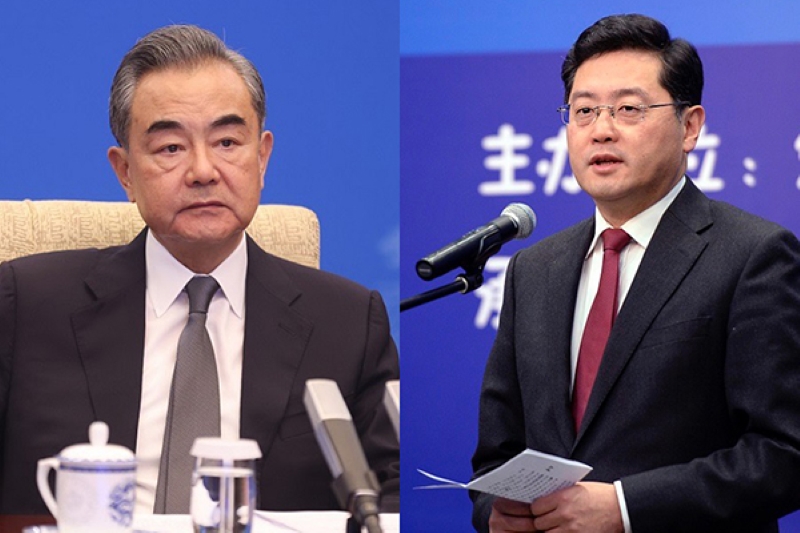
China’s leader, Xi Jinping, has removed Foreign Minister Qin Gang from office after a mere seven months, following an unexplained month-long absence that sparked speculation both inside and outside the country.
Despite the official announcement, many details surrounding Mr Qin’s fate remain shrouded in mystery. His rapid ascent through China’s diplomatic ranks, fueled by his previous role as Mr. Xi’s top protocol officer, led to the perception in Beijing that he was a trusted confidant within the diplomatic corps.
Observers have put forward various theories, attributing his sudden removal to both health issues and potential political reasons.
The announcement made by the country’s legislature on July 25 mentioned Qin Gang dismissal as Foreign Minister, while his predecessor, 70-year-old Wang Yi, who holds the position of head of the Communist Party’s Central Foreign Affairs Commission, will temporarily take over the role. Interestingly, the announcement suggested that Qin would continue serving as a State Councilor within the Cabinet—a position that holds higher rank than ministerial posts, placing him just below the Premier and Vice Premier.
Qin’s last public engagement was on June 25 when he met with Foreign Ministers from various countries, including Sri Lanka. He missed the ASEAN meetings in Jakarta, with the Chinese Foreign Ministry citing “health reasons” during an earlier press briefing, though this explanation was later removed from the official transcript, leading to further speculation.
The Chinese Communist Party’s propensity for secrecy surrounding leaders’ health has raised calls for greater transparency in Qin Gang’s case. In the past, when former leader Hu Jintao faced health issues during a Party Congress, state media promptly reported on his condition, in contrast to the lack of information about Qin’s absence.
If the reasons behind Qin’s removal were indeed political in nature, it would be an extraordinary and unprecedented scandal given his close ties to Xi Jinping.
Qin Gang, aged 57, was appointed as Foreign Minister in December, despite being less senior than other candidates. He had previously served in Washington as China’s ambassador, a role that was unconventional for Chinese diplomatic appointments. His rise through the ranks has been notable, including his earlier role as the spokesperson for the Foreign Ministry.
Whether Qin Gang will return to his post later this year or face further consequences, such as losing his other current positions, remains uncertain. The decision to appoint 70-year-old Wang Yi, who already holds significant responsibilities, may be seen by some as a temporary measure until further investigations and decisions are made.
In conclusion, the dismissal of Qin Gang has left numerous questions unanswered, and speculation continues to swirl both within China and on the international stage. Only time will reveal the full extent of the situation and shed light on the reasons behind this unexpected turn of events.






